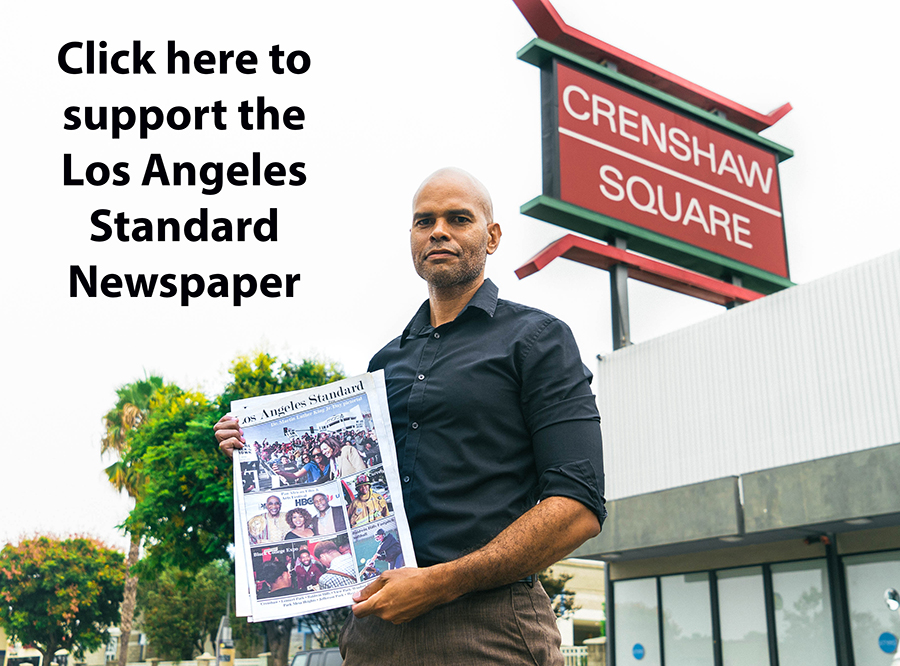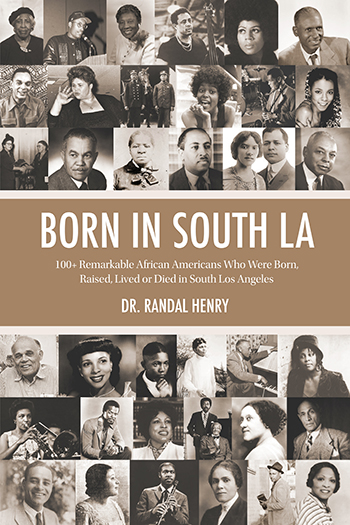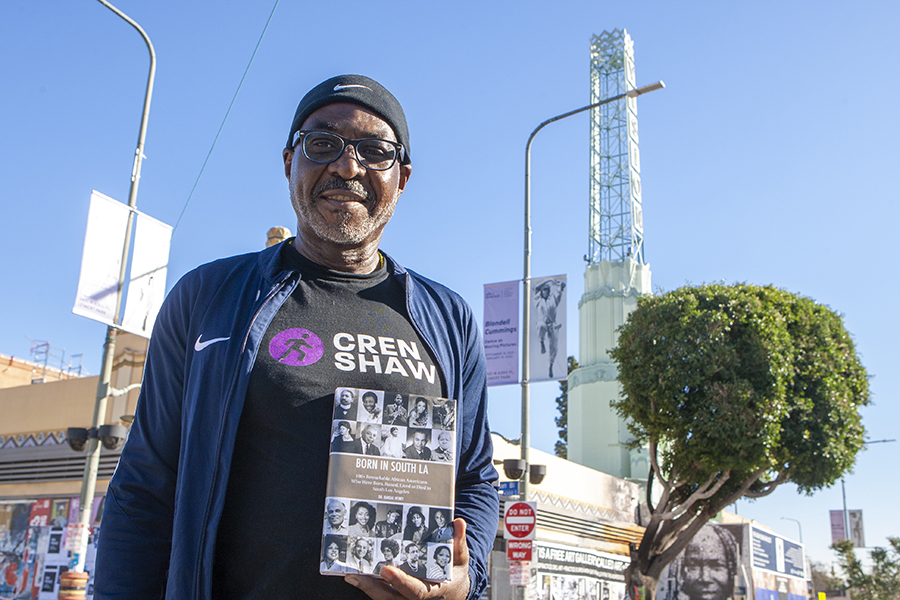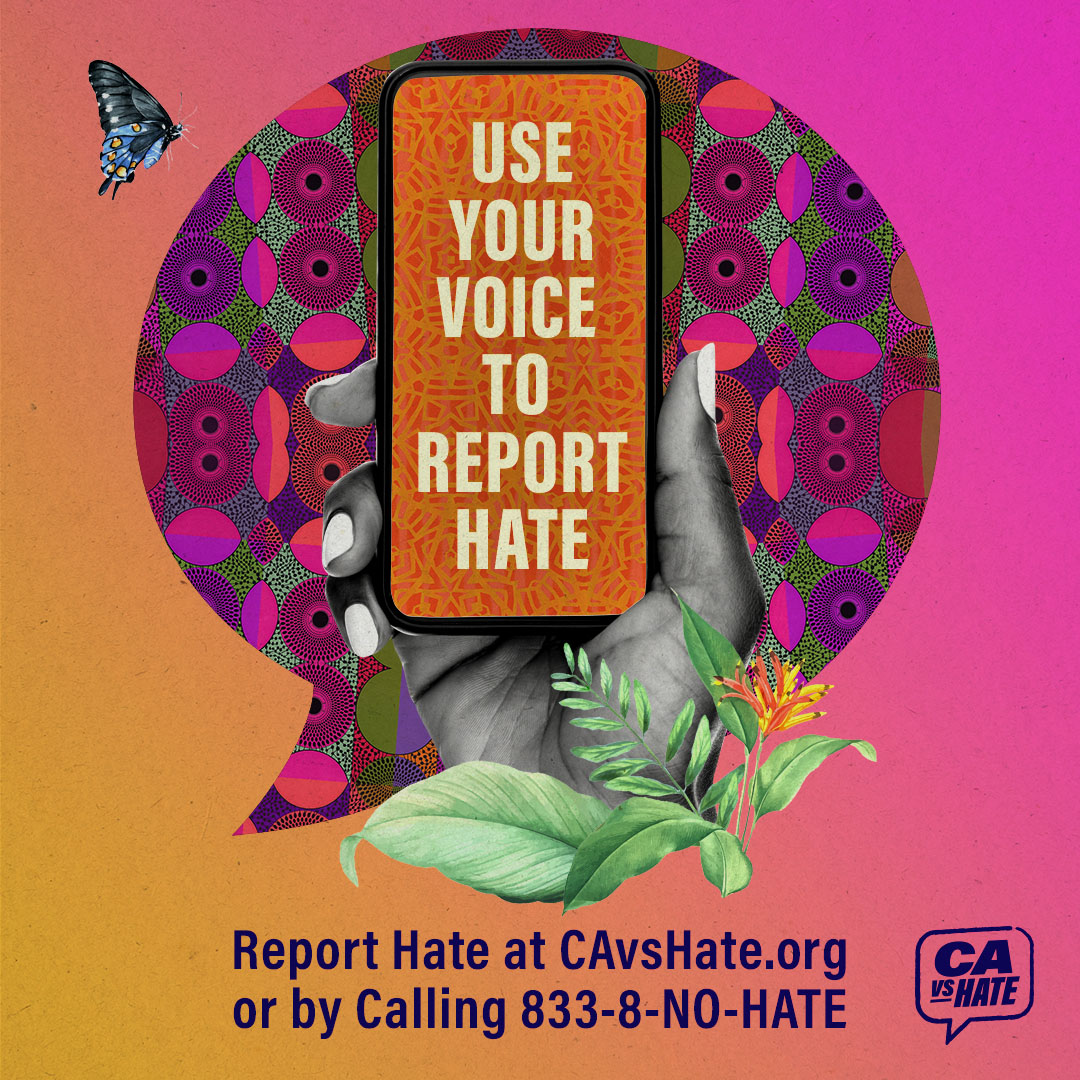South Los Angeles resident Randal Henry has published a book that showcases remarkable African Americans who were born, raised, or lived in South L.A.


By Jason Lewis
Like many South Los Angeles residents, Randal Henry takes great pride in the community that raised him. But like most locals, he drove past buildings everyday that had names on it of people that that he was unfamiliar with.
“One day I realized that I really didn’t know as much about L.A.’s Black history and the contributions of African Americans to Los Angeles as I would like,” he said. “One day I passed the A.C. Bilbrew Library and wondered, ‘Who was A.C. Bilbrew and why is there a library in South L.A. named after her?’ I started off by making a list of all of the public buildings and decided to find out who were they named for and why.”
While receiving a Doctor of Public Health and a Master of Public Health from the UCLA School of Public Health, Henry came across a building on campus called LuValle Commons, which is named after James LuValle. LuValle was a Black man who won an Olympic medal in the 400-meter dash at the 1936 Berlin Olympics. He earned a bachelor’s degree and master’s degree in Chemistry from UCLA, and he was the first Black person to receive a PhD at CalTech.
“LuValle Commons is named in his honor,” Henry said. “How did I go to UCLA and not know that LuValle was a Black man who had done all of these wonderful things? That’s why we need to tell our own stories.”
Randal loves South Los Angeles and he felt that the history of the people who made great contributions to society who are from this area should be told to the masses.
“You should know all of the people who came through your community before you; that contributed to the community that you love; to the vibrancy of South L.A.; who made this place what it is for Black people,” he said.
During Henry’s research, he found remarkable African Americans from many different walks of life.
“Everybody knows an athlete’s name, and everybody can name a politician,” he said. “But unless you really look into it, you might not know who the teacher was at Jefferson (High School) who was the catalyst for all those jazz musicians that came out of Jefferson. Like Dexter Gordon, Horace Tapscott, Lester Young. These musicians were taught by Samuel Browne. This man’s name needs to be heralded every time they talk about the jazz scene in L.A. He’s the guy that came up with the word ‘cool.’ He was from here, and everybody took their style from him.”
Henry’s larger plan was to publish a book of the historical facts about South Los Angeles, and on what “people can see, do, taste, and experience” in this community. Jet Magazine and Ebony Magazines are two of his influences in this project.
“Jet and Ebony allowed me to go in, as a kid in the barbershop while I was waiting my turn, and I could read a page of something, or an article,” he said.
After creating profiles on over 100 Black people who lived extraordinary lives in South Los Angeles, Henry decided to break up his project into a book series. The point of the series is to show people how Black people have had a positive impact on this city, opposed to the images of crime and struggle that are typically broadcast by the media. The book also showcases African American’s rich history in Los Angeles, because some people who do not travel south of the 10 freeway do not realize how large the Black community is in Los Angeles.
“Most people don’t get beyond the stereotypes, or what they see on the evening news,” he said. “They see us portrayed in the movies. I live on a street with many Black homeowners. We’ve been solid for years. I can’t go a day without seeing an African American from any walk of life in my community. I live, work, and play right here. If you don’t see Black people in L.A., I’m not sure where you’re going. I interact with Black people every single day.”
Born in South L.A. can be purchased online through Amazon, Barnes & Noble, and Walmart. The book can also be purchased at gocrenshaw.shop, where other Crenshaw related merchandise can be found.











